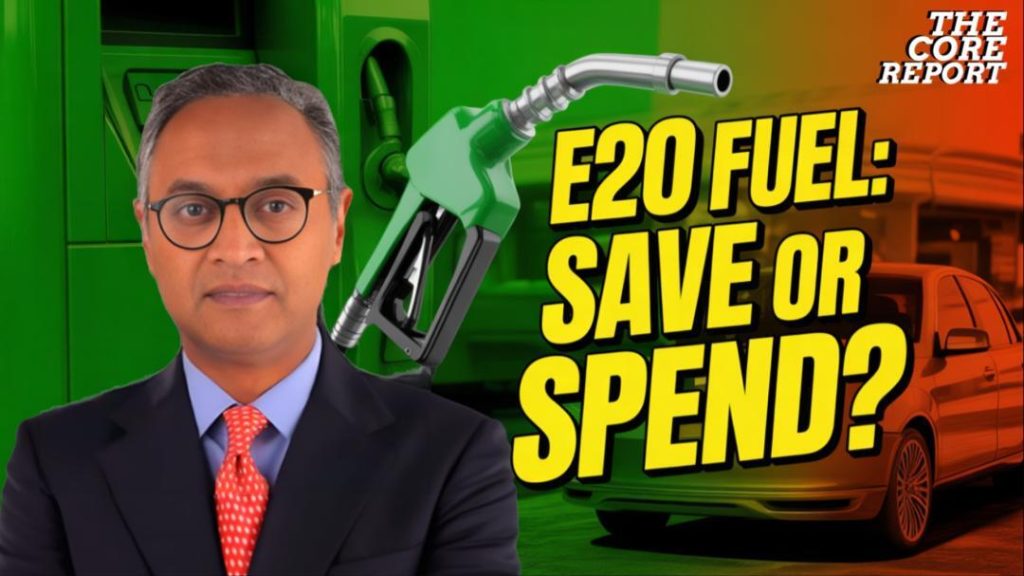
E20 Fuel in India: Benefits, Risks & What Vehicle Owners Must Know
India’s recent shift to E20 petrol blend, which is 20% ethanol and 80% petrol, has generated significant interest among vehicle owners and enthusiasts alike. The move is aimed at reducing carbon emissions, boosting energy security, and supporting farmers. As the government studies report improved acceleration and environmental benefits, it is essential for vehicle owners to understand the implications of this change. In this article, we will delve into the benefits, risks, and what vehicle owners must know about E20 fuel in India.
Benefits of E20 Fuel
The adoption of E20 fuel in India is expected to have several benefits. Firstly, it will help reduce carbon emissions by up to 40% compared to traditional petrol. This is because ethanol is a renewable and biodegradable fuel that produces fewer greenhouse gas emissions. Additionally, the use of ethanol will reduce India’s dependence on imported fossil fuels, thereby boosting energy security.
Another significant benefit of E20 fuel is its potential to support Indian farmers. The government has set a target of 10% ethanol blending in petrol by 2022, which will require the production of a significant quantity of ethanol. This will provide a new market opportunity for farmers, particularly sugarcane farmers, who can sell their surplus sugarcane juice to ethanol manufacturers.
Risks of E20 Fuel
While the benefits of E20 fuel are undeniable, it also poses some risks. One of the significant concerns is the potential impact on older vehicles that are not designed to run on E20 fuel. Vehicles manufactured before 2000, for example, may not be compatible with E20 fuel, which can cause damage to their engines and fuel systems.
Older vehicles may experience engine wear and tear, fuel system corrosion, and even mileage loss due to the use of E20 fuel. This is because E20 fuel has a higher ethanol content than traditional petrol, which can affect the performance and longevity of older engines.
What Vehicle Owners Must Know
As the government moves towards making E20 fuel mandatory for all new vehicles by 2025, vehicle owners must take certain precautions to ensure a smooth transition. Here are some things that vehicle owners must know:
- Check your vehicle’s compatibility: Vehicle owners must check their vehicle’s compatibility with E20 fuel before switching to it. They can check their vehicle’s manual or consult with a mechanic to determine if their vehicle is compatible with E20 fuel.
- Use E20-compatible fuel filters: Vehicle owners must use E20-compatible fuel filters to prevent fuel system corrosion and ensure smooth engine performance.
- Monitor your vehicle’s maintenance: Vehicle owners must monitor their vehicle’s maintenance regularly to prevent engine wear and tear. Regular maintenance checks can help identify any issues early on, reducing the risk of engine damage.
- Keep an eye on your vehicle’s mileage: Vehicle owners must keep an eye on their vehicle’s mileage and adjust their driving habits accordingly. E20 fuel may affect your vehicle’s mileage, so it is essential to monitor your vehicle’s performance and adjust your driving habits to maximize fuel efficiency.
- Consult with a mechanic: Vehicle owners who are unsure about their vehicle’s compatibility with E20 fuel or have concerns about its performance should consult with a mechanic. A mechanic can provide expert advice and help vehicle owners make an informed decision about switching to E20 fuel.
Conclusion
The adoption of E20 fuel in India is a significant step towards reducing carbon emissions and boosting energy security. While there are some risks associated with E20 fuel, vehicle owners who take the necessary precautions can ensure a smooth transition. By checking their vehicle’s compatibility, using E20-compatible fuel filters, monitoring their vehicle’s maintenance, keeping an eye on their vehicle’s mileage, and consulting with a mechanic, vehicle owners can maximize the benefits of E20 fuel and minimize its risks.
News Source:






